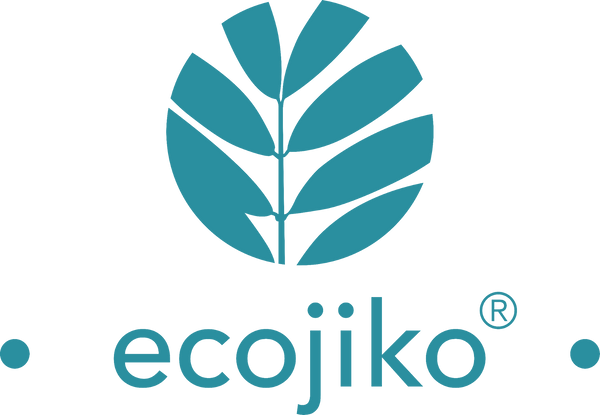In today’s world, the importance of eco-friendly products has never been greater. As we face the growing challenges of climate change, plastic pollution, and the depletion of natural resources, adopting sustainable practices has become essential. Eco-friendly products are designed to reduce their environmental impact, from production to disposal.
82% of UK consumers believe that businesses have a responsibility to protect the environment which is why, here at ecojiko, we have taken the steps to provide you with a range of environmentally friendly products. We believe that every small change can make a big difference.

The Impact of Eco-Friendly Products on the Environment
Eco-friendly products are created with the environment in mind. This means every aspect of their life cycle—from sourcing materials to production, usage, and disposal—is designed to minimise harm to the planet. Here’s how:
- Reduced Carbon Footprint: Many eco-friendly products are made locally or with materials that require less energy to produce. By choosing products with a lower carbon footprint, we can help reduce overall greenhouse gas emissions, which contribute to climate change.
- Sustainable Materials: Eco-friendly products are often made from renewable or recycled materials, reducing the demand for virgin resources. For example, bamboo is a popular choice because it grows quickly and requires minimal resources, making it a highly sustainable option compared to conventional materials like plastic. We have a range of products made sustainably from bamboo such as toothbrushes, detangling brushes, pot scrubbers and more.

- Minimised Waste: Products designed with sustainability in mind often have reduced packaging or are packaged in materials that are biodegradable or recyclable. This helps to minimise waste that would otherwise end up in landfills or, worse, in our oceans.
- Longer Lifespan: Eco-friendly products are generally designed to be durable and long-lasting. By choosing quality products that last, we reduce the need for frequent replacements, thereby cutting down on waste and conserving resources.
How Does Zero Waste Help the Environment?
Zero waste is more than just a trend; it’s a lifestyle and a commitment to reducing the amount of waste we produce. The zero-waste movement encourages us to rethink our consumption habits and prioritise sustainability in every aspect of our lives. But how exactly does it help the environment?
- Reduces Landfill Waste: A significant portion of the waste we produce ends up in landfills, where it can take hundreds or even thousands of years to decompose. By adopting zero-waste practices, we divert waste away from landfills, reducing their environmental impact.
- Decreases Pollution: When waste is incinerated or left to decompose in landfills, it releases harmful chemicals and greenhouse gases into the air, water, and soil. Reducing waste production means less pollution and a cleaner, healthier environment.
- Conserve Resources: It encourages the use of sustainable materials and the recycling of existing resources. This reduces the demand for virgin resources and helps preserve natural ecosystems and biodiversity.
- Encourages Sustainable Consumption: By prioritising reusable, recyclable, and biodegradable products, the zero-waste movement promotes a shift towards sustainable consumption. This reduces the negative impacts associated with mass production and waste disposal.

How to Be More Zero and Low Waste
Transitioning to this lifestyle may seem daunting at first, but it’s easier than you think! Plastic waste is expected to be reduced by 45% from 2019 levels and with more people doing their bit to be more zero waste this target can be met. Here are some practical steps you can take to reduce your waste footprint:
- Assess Your Waste: Start by looking at what you’re throwing away. Are there any common items you could replace with reusable alternatives? Identifying your biggest waste contributors is the first step in reducing your overall waste
- Choose Reusable Over Disposable: Opt for reusable products whenever possible, such as stainless steel water bottles, bamboo cutlery, and cloth shopping bags. By choosing items that can be used repeatedly, you can significantly reduce the amount of waste you generate.
- Reduce Plastic Use: Plastic pollution is one of the biggest environmental challenges we face today. Look for alternatives to single-use plastics, like glass jars, silicone storage bags, and compostable packaging.
- Shop Mindfully: Buy only what you need and look for products with minimal or eco-friendly packaging. Consider purchasing in bulk to reduce packaging waste, and support brands committed to sustainability, like ecojiko!
- Compost Organic Waste: Composting is a fantastic way to reduce food waste and create nutrient-rich soil for your garden. Even if you don’t have a backyard, many cities offer composting programmes or have community composting bins.
- Recycle Properly: Ensure you’re recycling correctly by following your local recycling guidelines. Clean and sort your recyclables to prevent contamination, and remember that some items, like batteries and electronics, require special disposal.
- DIY and Repurpose: Before tossing something out, consider if it could be repurposed or repaired. Old clothes can be turned into cleaning rags, glass jars can be reused for storage, and many household items can find a second life with a little creativity.
- Educate and Advocate: Share your low-waste journey with others and advocate for sustainable practices within your community. By raising awareness and encouraging others to adopt eco-friendly habits, we can collectively make a bigger impact.

What Does Zero Waste to Landfill Mean?
“Zero waste to landfill” is a term used to describe a commitment to divert all waste from landfills through reduction, reuse, recycling, and composting. This means that all waste produced is either reused, recycled, or composted, ensuring that nothing is sent to landfill.
Achieving this requires a comprehensive approach to waste management, including:
- Source Reduction: Reducing waste at its source by choosing sustainable, long-lasting products and minimising packaging.
- Recycling and Composting: Ensuring that all recyclable materials are properly sorted and sent to recycling facilities and that organic waste is composted.
- Waste-to-Energy: In some cases, non-recyclable waste may be converted to energy through processes like incineration or anaerobic digestion, although this is typically considered a last resort in the zero-waste hierarchy.
- Corporate Responsibility: Many companies (including us) are committed to zero waste to landfill by designing products and packaging that are fully recyclable or compostable and by implementing sustainable practices in their operations.
The Role of Eco-Friendly Products in a Zero and Low Waste Lifestyle
Eco-friendly products play a crucial role in achieving zero and low waste goals. By choosing products made from sustainable materials, opting for reusable items over disposables, and supporting brands committed to it, we can significantly reduce our environmental impact.
At ecojiko, we are passionate about providing products that are not only kind to the planet but also practical and stylish. From our bamboo cutlery sets to our reusable coffee cups, every product is designed with sustainability in mind, helping you live a more eco-friendly, lifestyle.
Eco-friendly products and a low-waste lifestyle go hand in hand. By making mindful choices and prioritising sustainability, we can reduce our waste, conserve resources, and protect our planet for future generations. Every small step counts whether you’re just starting your journey or looking to take your efforts to the next level. Remember, the path to a sustainable future begins with the choices we make today.
Together, let’s make a positive impact on our environment—one reusable product at a time! Discover our range of eco-friendly products designed to help you reduce waste and live more sustainably. Shop our products now and take the first step to waste less and reuse more!





